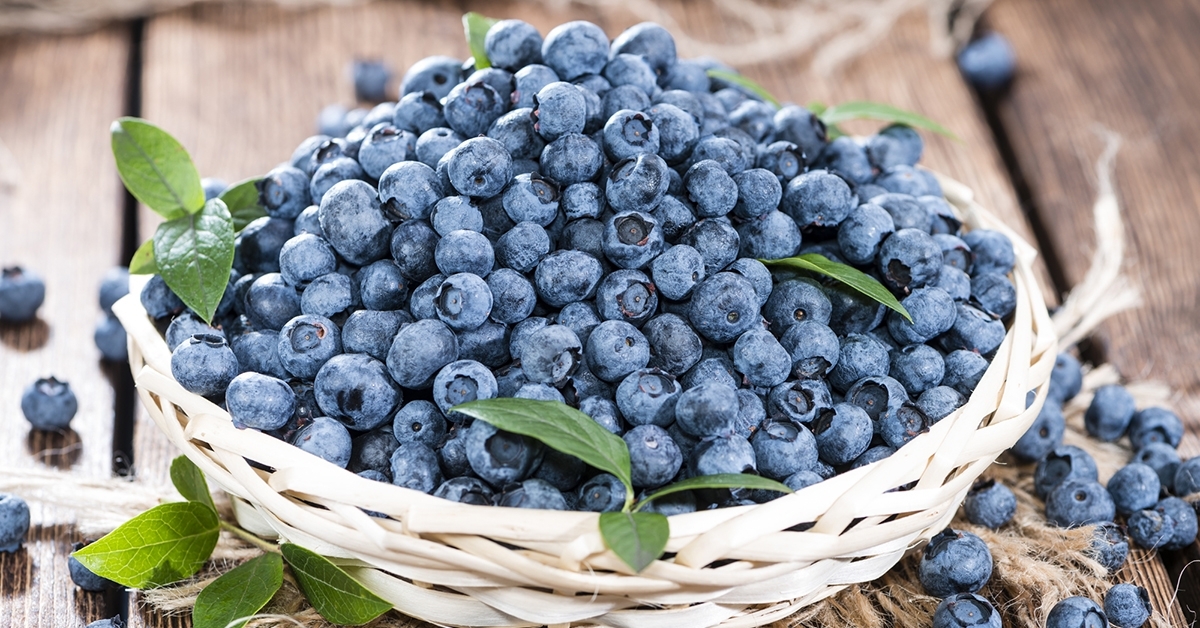For quite a while, medical researchers have explored all the ways a wonderfully helpful food acts as preventive medicine for the brain, keeping memory problems at bay.
As a result, people whose memories are starting to slip may soon find themselves with an unusual prescription from their healthcare practitioner —
Eat blueberries every day.
Brain Medicine in a Berry
The latest tests on blueberries for memory support have produced impressive results.
For instance, when researchers at the University of Exeter in England gave daily glasses of concentrated blueberry juice to people aged 65 to 77, they discovered that the juice increased blood flow to their brains, multiplied the responses of their neurons to the challenge of performing complex mental tasks and produced obvious improvements in their intellectual abilities.1
And those results were in seniors who were not even experiencing significant memory loss.
“In this study we have shown that with just 12 weeks of consuming 30 ml of concentrated blueberry juice every day, brain blood flow, brain activation and some aspects of working memory were improved in this group of healthy older adults,” says researcher Joanna Bowtell, who heads up the department of sport and health sciences at Exeter.
Controlling Rogue Immune System Cells
Scientists are beginning to realize that one big reason the nutrients in blueberries may be so helpful for keeping the brain out of the clutches of Alzheimer’s disease – and related problems — is their calming effect on inflammation.
Inflammatory misbehavior of the immune system – when immune cells cause damage to otherwise healthy neurons in the brain – may be a key component that compromises brain function and causes thinking abilities to slide downhill.
In a person with chronic inflammation, immune cells called microglia roam the brain and, instead of helping keep the brain tissue in good working order, release harmful substances that damage neural networks.
During research in Italy, scientists found that blueberries can hold back this destructive inflammation and keep microglia under better control. The Italians aren’t sure how the blueberry nutrients accomplish this – and they’re not even sure how blueberry nutrients cross the blood/brain barrier and travel into the brain. But they think it’s possible that blueberries do something in another part of the body to affect the nervous system that, in turn, holds back the activity of microglia.2
Doctors Should “Prescribe” Blueberries
Meanwhile, research at the University of Cincinnati shows there’s no reason doctors shouldn’t be recommending blueberries to older folks whose memories are starting to fog.
In this study, scientists fed freeze-dried blueberry powder to about 50 people in their late 60s and 70s who were already suffering mild cognitive impairment (MCI), a memory problem that often precedes full-blown Alzheimer’s.
After four months the results were impressive. The blueberry consumers “demonstrated improved memory and improved access to words and concepts,” says researcher Jack Krikorian.
As additional evidence, scans of these people’s brains showed that the blueberry powder increased the activity of the brain’s neural networks.3
So the evidence is pretty clear – blueberries are your brain’s best friend – no matter what state your brain is in. Even if you’re not worried about Alzheimer’s, but merely want to keep your brain functioning at a high level, research shows that blueberries can help your hippocampus (the brain’s memory center) grow new neurons – giving you a potential brain boost.







